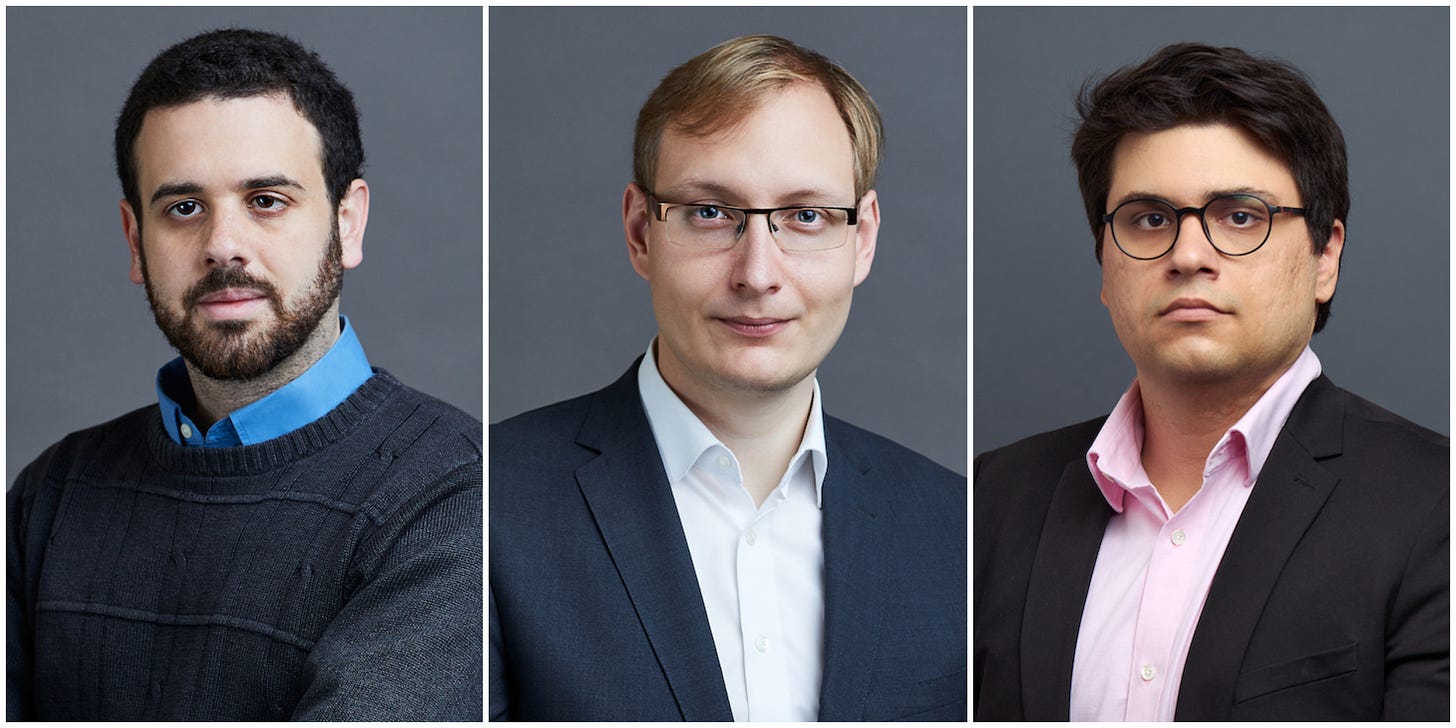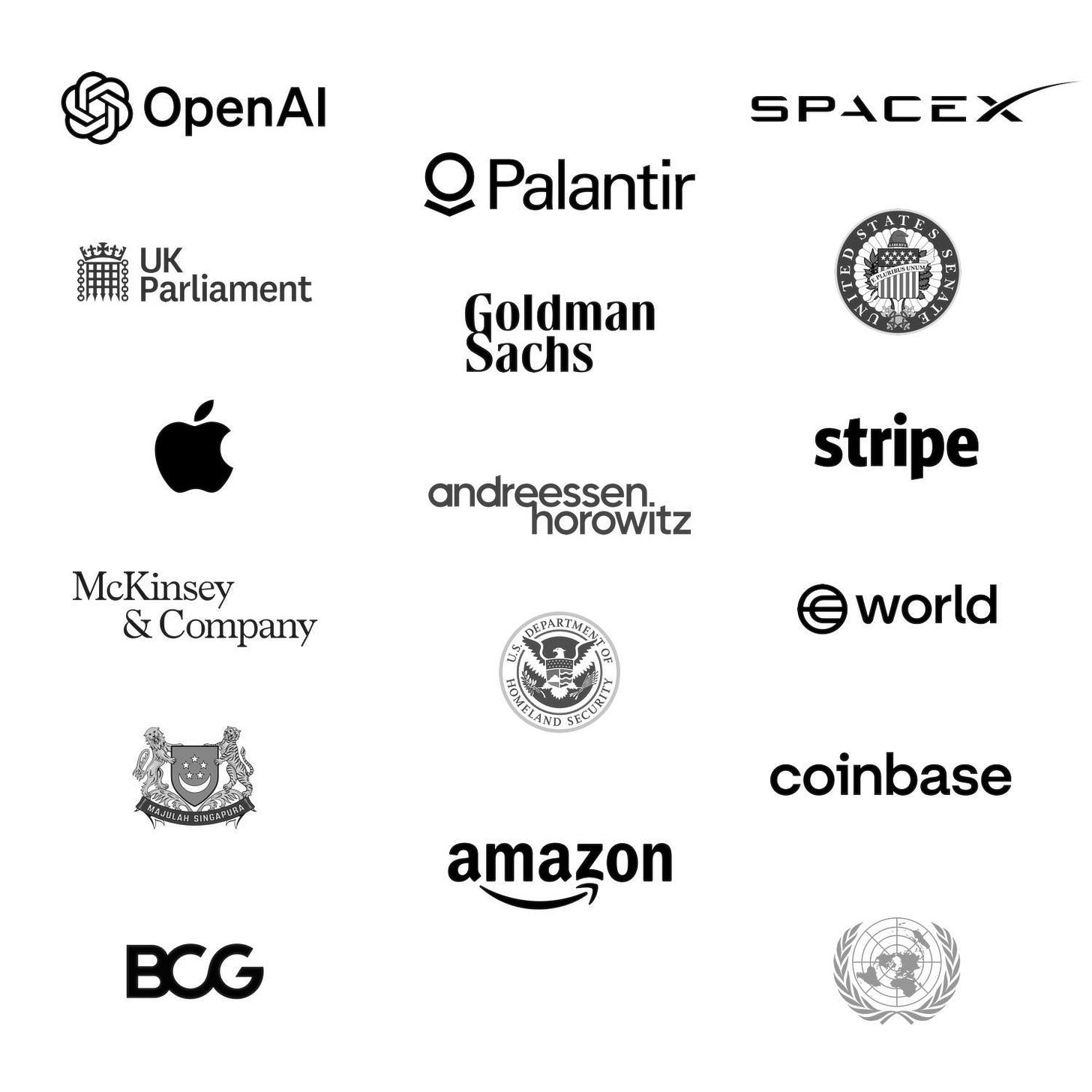What We Do At Bismarck Analysis
Since 2017, our company has advised investors, philanthropists, companies, and governments, who turn to us to help make unique, qualitative, and long-term improvements in strategy and performance.

One of the most surprising things I’ve experienced since launching Bismarck Brief in 2021 is how the perception of my company, Bismarck Analysis, has changed. Before we launched the Brief, except for our selective clientele, many people I spoke to did not intuitively grasp the nature and scope of the work we did. After three years and well over 150 in-depth Briefs, our growing and sophisticated readership—who span technology, government, finance, and beyond—have become familiar with our thinking and methods, and we have built a unique brand and reputation around them.
However, while the nature and scope of our work have been accurately recognized, the form has not. Many have now come away with the impression that Bismarck Brief is our primary or even only product. Nothing could be further from the reality! The Brief is just our relatively most public-facing product; the central purpose of Bismarck Analysis has always been, and remains, our close work with our private clients. Rarely is a new type of consulting firm founded. Since the mission and model of our company is new, it is worthwhile to explain what exactly it does, and how exactly it works.
I founded Bismarck Analysis in California in 2017 to apply the insights from nearly a decade of research into institutional functionality and live player strategy to the problems faced by my friends and acquaintances who were investors or philanthropists, or ran companies, nonprofits, or government organizations. Today, our global headquarters are located in downtown San Francisco, where I work when I am not flying around the world to meet with current or prospective clients, give lectures at gatherings both public and private, or catch up in person with my employees around the world. Our satellite offices are located in London and Europe.
Our core service is relatively straightforward: our clients approach us with problems or uncertainties they have regarding their personal or organizational strategy to meet their goals, and we evaluate and if necessary reinvent their strategy from a unique, principled, and fresh outside perspective, making use of cross-disciplinary expertise and taking into account contrarian viewpoints. Through the course of our work, we conduct original research on relevant industries, live players, and competitors. We produce case studies showcasing our analysis and generate novel theory relevant to the client’s goals. We seek out key experts or potentially valuable contacts and arrange meetings. In the end, our clients come away better informed and with a deeper understanding of the institutions, players, and factors affecting their plans, and how those plans could be modified to be more likely to succeed.
Depending on the size and scope of a contract, we might work with a client for weeks, months, or even years. Our clients are based in North America and Europe. Discretion and confidentiality are crucial to maintaining the intellectual integrity of our work, our client’s trust in it, and, of course, the privacy of our clients. It is our policy not to disclose our clients or comment on our specific work with them. The examples I give of our work, therefore, must be broad and illustrative.
One recent client wished to have the best possible strategic understanding of the technology driving recent advances in artificial intelligence, as well as the people and organizations developing it. To meet this lofty goal was a complex undertaking. We began by compiling a list of the world’s top two hundred AI scientists, with detailed dossiers and player analyses of the top dozen. We undertook in-depth case studies of the key companies in the semiconductor supply chain, such as TSMC and ASML, and evaluated their capacity and bottlenecks. We investigated top AI companies and labs, like OpenAI and Anthropic, as well as their leadership, technology, and top personnel. We made estimates of the current and projected computing power and electricity available to these players. We delivered an exhaustive report detailing the state of the technology, industry, and government attitudes towards it, built out of dozens of individual, discrete case studies, and synthesizing the insights from our research into a single clear picture of the domain and its future. To this day, nothing quite like it has been published by anyone else in the public sphere, giving our client a substantial asymmetric advantage.
During another recent contract, our mission was to advise the head of state of a First World country on industrial policy and energy strategy. As part of the client’s interest was in evaluating the possibilities of expanding nuclear power, we commenced by thoroughly investigating the capabilities and operational restrictions of the world’s premier nuclear power companies, from France to South Korea, and producing detailed reports on them. We conducted a comprehensive review of the country’s energy regulations and policies, identifying where major improvements or changes were necessary. At the behest of our client, we examined a particularly strategic energy-intensive industry, the key firms within it, key factors affecting its current and future success, and developed a program for revitalizing this industry. We ultimately delivered a series of concise but dense memoranda outlining our conclusions and recommendations to meet the client’s goals, which could be widely shared across agencies and with key decision-makers.
Other contracts we have undertaken have included generating novel foreign policy ideas for a nonprofit advocacy, evaluating the implementation and design of complex products for a growing software company, and seeking out the most interesting overlooked thinkers in demographics and other domains for a wealthy individual. Two of our earlier publicly-released white papers, on machine tools and on nuclear nonproliferation, were adapted from private work for our clients. We aim to build long-term partnerships with clients who seek to make a difference in the world. The ultimate goal of Bismarck Analysis is to heal and improve the institutional structures of our civilization, by working with and augmenting the individuals and organizations who maintain and advance them.
As the founder and president of a company that does intellectual work, communicating your unique thinking and theory to the public is as crucial for establishing legitimacy and finding both collaborators and clients, as developing it in the first place is. Over the years, I have not only formally laid out my theory of history and society, Great Founder Theory, but have also spoken at Y Combinator and Davos, written for publications like Politico and City Journal, and interviewed some of the greatest artists and philosophers of our time, including Grimes and Slavoj Žižek.
Our core team is composed of full-time analysts who may work on the Brief or any other contract I assign them. I only hire geniuses. I strongly encourage all of my analysts to also show off their intellectual chops in public, and they have done so with great success. It is not unlikely that you have heard of them or already read their writing, as they include my good friends and colleagues like Ben Landau-Taylor, Marko Jukic, Rian Whitton, Andrew Sabisky, and others, who have published many insightful articles and amassed large followings of their own. Their demonstrated breadth of knowledge, originality in thinking, and diverse, unorthodox viewpoints are brought to bear on every problem our clients bring to us.
Our analysts are required to be capable generalists. In their work and organizations, our clients face problems and questions that cut across the boundaries established by specialists and go beyond any established consensus. Conventional wisdom is of little use. They have no choice but to be informed and educated in a multitude of domains, ranging from economics to history to psychology to the hard sciences. I expect nothing less from our analysts, whose original professional backgrounds range from software to government, and who are kept sharp, in part, by the rigor and consistent tempo of the Brief.
Like other startups or high-touch firms, our analysts work hard and long, measured in both hours and in output. Though we do our best to maintain a balance and steward our personnel for the long term, it is not uncommon, especially for myself, to work 70-hour weeks. When our work calls for it, an analyst may well be sent across a continent or ocean on short notice. With our analysts spread across ten time zones, much of our work is handled remotely. This is often key to managing our workload: we quip that, like the British Empire in its heyday, the Sun never sets on Bismarck work.
I am often asked what distinguishes the work we do at Bismarck from conventional consultancies like McKinsey or Stratfor. The answer is that whereas the former focuses on management consulting and the latter on geopolitical risk, our approach treats both of these domains as subordinate and inseparable parts of the greater whole that is institutional function and the strategies of live players who steer those institutions. Those who work with Bismarck will not find that their conversations and ideas are limited by social, professional, or intellectual conventions. When you hire Bismarck, you are hiring a team of geniuses. Everything is on the table. I invite anyone to read our publicly-available Briefs and compare them to the public output of these other firms to see the difference.
Bismarck Brief is a standalone product. But it is informed by, and informs, the work our skilled team of analysts and I undertake for our private clients across business, government, and the nonprofit world. If you wish to hire Bismarck Analysis, please contact us at contact@bismarckanalysis.com. If you wish to book a brief consultation with myself and a handpicked member of my team, you can do so by becoming a paid subscriber to Bismarck Brief at the “Client” tier, using the button below. I warmly invite you to become a paid subscriber to Bismarck Brief and join us on this ongoing investigation into the global power landscape:
I also recommend you read our explanations of how Bismarck Brief outperforms the stock market, the theory of civilization underlying our work, why it is cheaper to be a paid subscriber to the Brief than a regular consumer of news and social media, our vision of the ultimate goal of the Brief as the first-ever atlas of live players and institutions, and, finally, a compilation of our 27 most important insights from three years of research and investigation.
Sincerely,
Samo Burja
Founder and President, Bismarck Analysis



